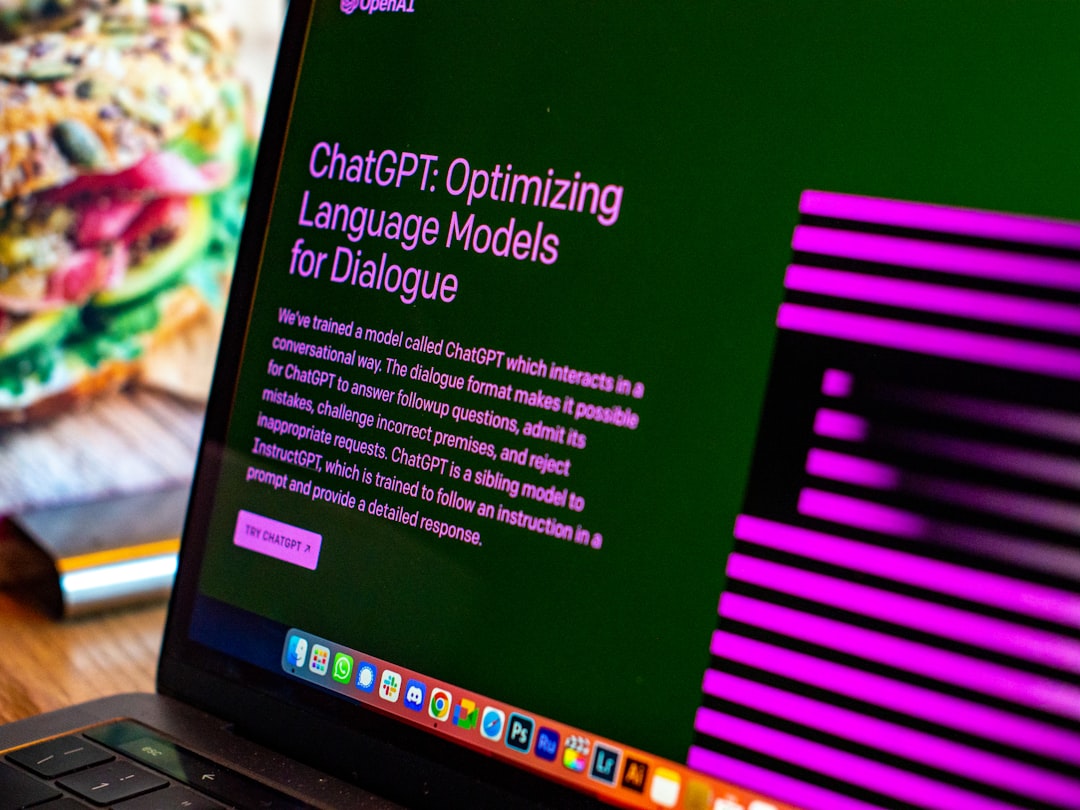As developers and AI enthusiasts continue to harness the power of ChatGPT for various applications, one recurring challenge is how to effectively manage long-running code tasks within this conversational framework. Whether you’re experimenting with scripts, building prototypes, or processing massive datasets, ensuring progress is saved and recoverable is essential. In this comprehensive guide, we’ll walk you through the most effective strategies and best practices to keep your lengthy code executions robust, resilient, and most importantly, fail-safe.
Why Long-Running Tasks Can Be Problematic in ChatGPT
When using ChatGPT, especially within platforms like the ChatGPT Editor or a browser-based interface, you’re likely to encounter certain limitations:
- Session timeouts: Sessions can end due to inactivity or connection issues, potentially wiping out your progress.
- Browser or tab crashes: If you’re running code directly in an environment embedded within the interface, disruptions might cause data loss.
- Lack of persistent storage: Temporary memory may not sustain large datasets or ongoing executions.
Given these constraints, it becomes critical to design a workflow that safeguards your work from losing progress during long-running processes.
1. Know When to Run Locally vs. In-Chat
If you’re planning to run code that takes more than a few minutes, or requires substantial computational resources or file handling, it’s often more efficient to run it locally. Here’s a simple decision-making matrix:
- Use ChatGPT for: Small scripts, logic testing, pseudocode assistance, error resolution, code explanations.
- Use your local machine or cloud platform for: Long training processes, web scraping, API polling, large file parsing.

2. Utilize Code Chunking Techniques
Breaking your long tasks into smaller, modular pieces not only improves readability but also allows you to isolate failures and retry specific segments without relaunching the entire task. Adopt the following strategies:
- Function-oriented design: Define multiple helper functions and call them sequentially.
- Use intermediate outputs: Save results to files or variables after each significant phase.
- Logging checkpoints: Record progress in a log, such as which batch of data was processed.
3. Save Progress to External Storage
Perhaps the most robust safety net is writing intermediate results to persistent storage. Here are some commonly used options:
- Local files: Use formats like CSV, JSON, or Pickle to save data regularly.
- Cloud storage (e.g., Google Drive, S3): Store progress remotely so even if your environment halts, recovery is possible.
- Databases: Write processed data into SQLite, PostgreSQL, or MongoDB to enable querying and restore points.
Pro Tip: Structure your saves with easy-to-parse markers (e.g., batch identifiers), so you know exactly where to resume.
4. Use Background Execution Techniques
If you’re using Jupyter notebooks or IDEs with asynchronous/job-based capabilities, you can dispatch heavy tasks to run in the background while focusing on other segments. Techniques include:
- Python’s threading and multiprocessing: Enable concurrent execution with control over process management.
- Task schedulers: Use cron jobs or task queues like Celery to handle background tasks independently.
- Notebook magic commands: `%time`, `%run`, and `%store` commands help manage state and execution time.
5. Auto-Save Code and Outputs
Use tools or extensions that automatically store your code and its outputs periodically. Depending on the environment, these could include:
- VSCode autosave + Git integration: Write, test, and commit regularly.
- Jupyter autosaving: Checkpoint your notebooks, or use extensions like nbextensions for auto backups.
- Google Colab autosave: Leverage built-in cloud sync features with your Google Drive.
6. Managing Variables and Session States
One powerful aspect of using scripting environments is the ability to manage and maintain variable states. If disrupted unexpectedly, losing variables can be disastrous. Here’s what you can do:
- Serialize variables: Use Pickle or Joblib to write complex objects like dictionaries or models to disk.
- State snapshots: Take periodic “snapshots” of current states to rehydrate in future runs.
- Environment cloning: Export environment configurations via pip freeze or conda export for exact reproducibility.
7. Implement Retry and Resume Mechanisms
Build your script to recognize when something goes wrong and offer self-repair/retry capability. A few ideas include:
- Try/Except blocks: Wrap critical sections with logging and recovery logic.
- Checkpoint loops: At each phase, log the completion, so future runs can skip already-done sections.
- Persistent job IDs: Assign tasks unique identifiers to keep track of what has completed successfully.
8. Keep Your ChatGPT Session Efficient
When using ChatGPT to help you with coding and debugging of long computations, observe these efficiency tips:
- Annotate your questions clearly: Describe the past context if ChatGPT forgets details.
- Avoid flood-sending large code chunks: Break them down, highlight only the error-prone parts.
- Use parallel tabs or threads: Maintain separate threads for different functions or files for cleaner tracking.

9. Use Version Control and Comments
Long-running projects often go through iterations. If you don’t use version control, it’s easy to overwrite working code or end up in a debugging spiral. Make it a habit to:
- Use Git branches: Create separate branches for different experiments.
- Comment extensively: Note assumptions, expected results, and known bugs for continuity.
- Use markdown cells (if in a notebook): Explain your logic next to the code for better clarity.
10. Document Your Recovery Steps
Have a simple checklist or README that outlines how to resume work if your process fails. Include items like:
- Which files are needed for recovery
- What variable states are expected
- How to restart from a specific phase
This will save hours of time in the future or even allow others to pick up your work seamlessly.
Wrapping Up
In the fast-evolving world of AI-assisted programming, it’s tempting to overlook stability in favor of speed. However, managing long-running code tasks without losing progress is a cornerstone of reliable, professional development. By applying these techniques—ranging from chunking and checkpoints to auto-saving and retry logic—you’ll protect yourself from setbacks and build smarter systems that can continue delivering value even in the face of interruptions.
Need ongoing help from ChatGPT during your coding sessions? Consider exporting logs, using markdown notes, and integrating your work with tools like GitHub and Jupyter to make everything more organized. That way, even if your session expires, your progress doesn’t.
Happy coding—and may your scripts always complete on the first run!


